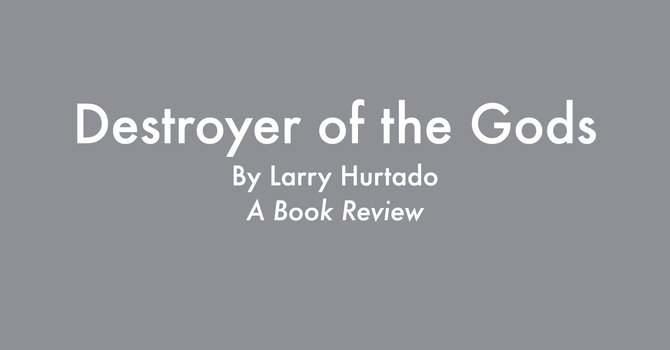
I wept after I submitted my final assignment.
I felt tremendous relief after completing a three-and-a-half year Masters degree while maintaining a full time job and raising two very young children. I remember trying to write a research paper while assisting my daughter in the bathroom while she vomited all night.
The process wasn't glamorous and involved a lot of sacrifice from my family and myself.
A part of what made me so proud was achieving what I had set out to do. I have always been passionate about education. The sense of pride I felt from graduating with Highest Honors in a subject I love gave me a feeling of accomplishment.
I graduated in 2017. What now?
Since August 2018, I have been serving as the Lead Pastor of Kamloops Alliance Church. Being the Lead Pastor of the church has been a profound blessing and a tremendous challenge.
During the interview process, I mentioned that I would like to pursue a doctoral degree at some point. During our conversation, I mentioned that I would be interested in beginning another degree if the church and I were both healthy and in good standing after five years. Gladly, they were on board.
My interest in philosophy and understanding culture has grown steadily over the past few years. As I look forward to the next 30 years of my life and ministry, the integration of faith and culture will become increasingly critical.
I submitted an application to Talbot School of Theology in La Mirada, California, for their Doctor of Ministry program. I applied to the "Engaging Mind and Culture track.
As of this week, I have been accepted to begin my doctoral program in January 2023!
You may have the following questions:
1. Are you leaving your role as Lead Pastor at Kamloops Alliance?
No! Absolutely not. It is designed specifically for people who work full-time in ministry. In conversations with program leaders, they estimated that the weekly commitment would be eight to ten hours per week. This is in addition to my normal work hours at KAC, but it's not unmanageable.
I was accepted to Talbot School of Theology because I was able to secure both family and church support. The Elders and I have been working together for the last six months or so and have been so supportive all the way through.
2. How is a PhD different from a DMin?
Typically, a PhD is devoted to submitting original research and ideas in a given field. It's like a laboratory worker trying to find a cure in a lab. An individual with a PhD is usually pursuing a teaching position in a university or seminary. DMin is a practitioner's degree focused on the practice of ministry. Rather than working in a laboratory to find a cure, a Dmin is like a family doctor sitting with patients.
I do not consider myself to be an academic or aspiring to be a teacher at a seminary. I am a local church pastor wanting to serve my congregation and city so the DMin program is right for me.
3. Why this particular track?
The theological focus of my undergraduate and graduate degrees prepared me to be able to read the Scriptures well. During my training, I learned about church history, hermeneutics, different genres of Scripture, original languages, systematic, biblical and historical theology.
However, I wanted to broaden my knowledge for my doctoral work.
The Engaging Mind and Culture track will push me to places I have never been. I will be reading and examining the intellectual history of our current culture. In this track, I am required look at the philosophical underpinnings and intellectual foundation of our culture and how to communicate the gospel to it
Greg Ganssle (PhD, Syracuse University) is the faculty advisor for this track. He has taught philosophy for decades, but specializes in helping Christians think well about culture.
I am excited to learn from him, and the cohort I will be studying with.
4. What is the structure of the program?
During the first three years, the pattern is similar. In each year, I will read from January through May, then spend two weeks studying at Biola University in La Mirada California, before writing 40-50 pages due during the late Fall.
The big ideas of each year are as follows:
Year 1: The Gospel in the Marketplace of Ideas - I will read people such as Nietchzhe, Russell, and Satre to get a better idea of our current culture.
Year 2: Engaging Worldviews and Culture - I will be exploring the area of ethics. How do we know what is right? As part of this course, I will explore relevant topics in our society like the relationship between church and state, economics, sexuality, and social justice.
Year 3: Inhabiting Culture Faithfully - Our final year will focus on how to lead a church to navigate the changing landscape of our culture while still holding to orthodoxy. I will also apply my learning to leadership development, spiritual formation, and evangelism.
Year 4-7: After the course work chapter is completed, I will begin writing my dissertation. I have up to four years to complete it.
5. What do you hope to accomplish with it?
My calling to the church is to make it healthier, more beautiful, and more effective. Taking this next step in my academic career will enable me to serve the church with increased clarity and knowledge. After graduating, I will be able to present the reality of Jesus in our increasingly hostile and skeptical world with more grace and skill.
I now have 407 days to wait until I begin (God willing!).
Whenever my kids are excited about something we always count down. So, if I were talking to my kids I'd say:
"407 sleeps."
Tomorrow, 406...





